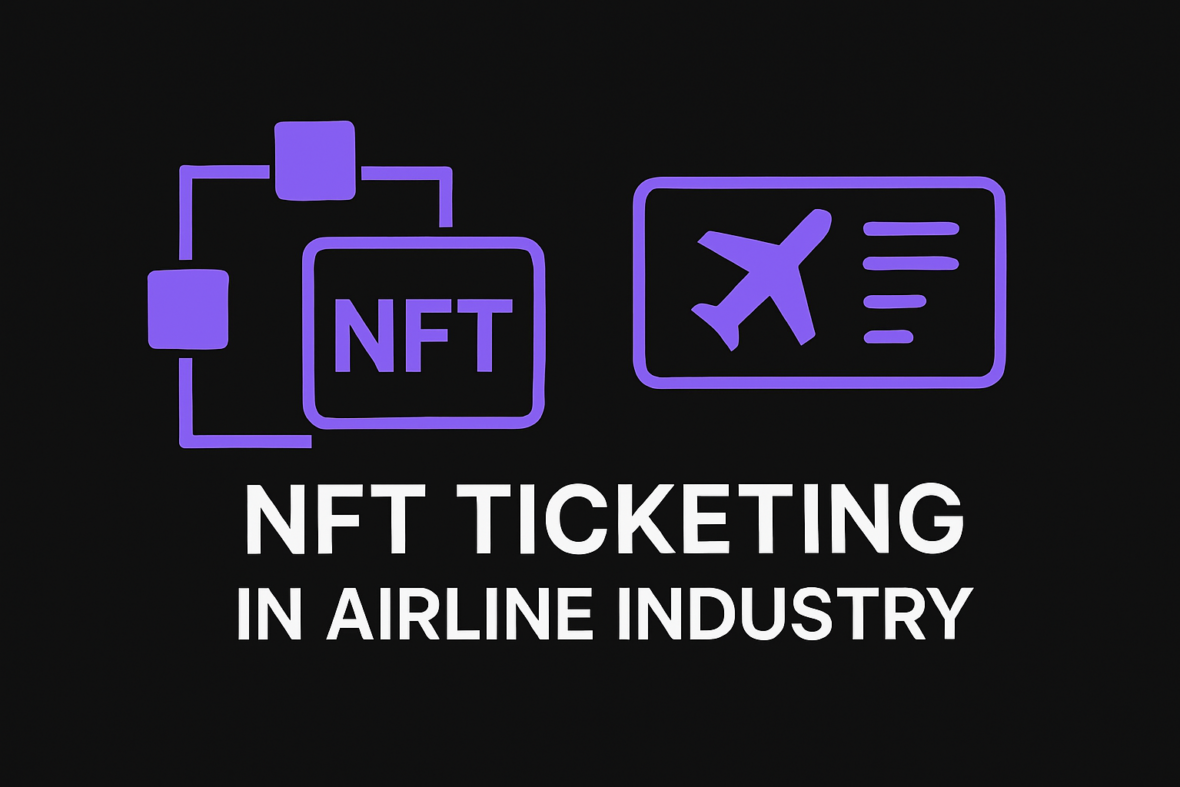NFT Ticketing in the Airline Industry: A Comprehensive Guide

Non-Fungible Tokens (NFTs) are transforming numerous industries, including airline ticketing. But what exactly are NFTs? In simple terms, NFTs are unique digital certificates of ownership stored on a blockchain—a secure, distributed digital ledger that records transactions across many computers. Unlike cryptocurrencies such as Bitcoin, each NFT is unique and cannot be exchanged on a like-for-like basis, hence the term “non-fungible.”
This technological innovation comes at a significant time for the airline industry, which is projected to generate $996 billion in revenue in 2024, with approximately five billion passengers expected to travel by air this year. The scale of this industry makes it an ideal candidate for technological improvements that enhance efficiency, security, and customer experience.
Early Adopters of NFT Ticketing in Aviation
Several forward-thinking airlines have already implemented NFT ticketing systems. Air Europa pioneered “NFTickets” in 2021, offering exclusive experiences and unique digital artwork with their tickets. The Argentine airline Flybondi began using NFTs for ticketing on select routes in 2022, focusing on building customer loyalty. Turkish Airlines wasn’t far behind, launching their initial NFT ticketing campaign in 2023. Meanwhile, Air France started integrating NFTs into their rewards program in 2022 to enhance passenger loyalty. These airlines are setting industry precedents and demonstrating the practical applications of NFT technology in aviation.
Benefits for Airlines and Passengers
For airlines, the advantages of NFT ticketing are substantial and multifaceted. Enhanced security stands as a primary benefit, as NFT tickets stored on a blockchain are immutable and significantly reduce the risk of counterfeiting. Each ticket has a verifiable chain of ownership that cannot be tampered with. Airlines also gain new revenue opportunities through dynamic pricing models that can adjust in real-time based on demand. Special edition NFT tickets can be offered at premium prices for collectors or for special events, creating additional value streams.
The key benefits for airlines include:
- Fraud prevention through tamper-proof tickets
- New revenue from dynamic pricing
- Reduced distribution costs
- Enhanced customer loyalty opportunities
Passengers also stand to gain considerably from this technological shift. The guaranteed authenticity of NFT tickets provides peace of mind, as travelers can verify the legitimacy of their tickets through blockchain technology. The travel experience becomes more streamlined with faster check-in processes through digital verification. Loyalty programs enhanced with NFT capabilities can provide more personalized benefits that evolve over time.
Consider this real-world example: an Air Europa passenger with an NFT ticket might enjoy pre-flight lounge access, the ability to upgrade during the flight based on availability, and post-flight benefits—making their ticket a multi-use asset rather than a one-time purchase.
Security and Financial Improvements
Blockchain technology—the underlying system for NFTs—creates a tamper-proof record of each ticket. Every NFT ticket has unique characteristics that cannot be duplicated, protecting both the airline and travelers from potential fraud. This represents a significant advancement in ticket security that addresses longstanding issues in the industry.
Airlines can also program specific terms into their NFT tickets to regulate the secondary market. They can set maximum resale prices to prevent scalping, ensure they receive a percentage of any resale profits, and control who can purchase resold tickets. This provides a level of control over ticket distribution that was previously impossible in traditional ticketing systems.
The financial benefits extend beyond fraud prevention. NFT ticketing opens additional revenue opportunities through collectible tickets for popular routes or special events, upgradeable features that passengers can activate for a fee, and limited edition designs that appeal to collectors. Simultaneously, the transition to NFT systems reduces expenses related to physical ticket materials, manual verification processes, and traditional distribution channels.
Passenger advantages worth noting:
- Guaranteed ticket authenticity
- Faster check-in and boarding
- Personalized travel experiences
- Potential for valuable ticket collectibles
- Seamless loyalty program integration
Data security also receives a significant boost. NFTs offer a secure method of managing passenger information because the decentralized nature of blockchain means passenger data isn’t stored in one vulnerable location. Smart contracts—self-executing contracts with the terms directly written into code—can be programmed to automatically comply with international regulations, streamlining compliance processes.
Explaining Technical Terms
For readers new to this technology, blockchain is a digital system that records information in a way that makes it difficult or impossible to change, hack, or cheat the system. It’s like a digital ledger duplicated and distributed across an entire network of computer systems. Smart contracts are self-executing agreements with the terms directly written into lines of code, which automatically enforce and execute when predetermined conditions are met.
Essential NFT terminology to understand:
- Blockchain: Secure digital ledger across multiple computers
- Smart Contract: Self-executing code with embedded rules
- NFT: Unique digital token representing ownership
- Digital Wallet: Software storing your NFT tickets
- Decentralized: Not controlled by a single entity
The term “decentralized” refers to systems not controlled by a single entity or organization. Instead, control and decision-making are distributed among many participants. Digital wallets are simply software applications where individuals can store their NFTs securely, much like a physical wallet holds important cards and documents.
Conclusion
NFT ticketing represents a significant advancement in airline operations, offering improvements in security, efficiency, and customer satisfaction. As this technology continues to develop, we can expect even more innovative applications that benefit both airlines and passengers.
The adoption of NFT ticketing is still in its early stages, but the clear benefits suggest it will become increasingly common across the aviation industry. For travelers, understanding this technology now will help prepare for the changing landscape of air travel in the coming years. As the technology matures, we may see it expand to include more personalized travel experiences, interconnected loyalty programs across different airlines, and even integration with other travel services like hotels and car rentals—creating a more seamless journey from start to finish.
